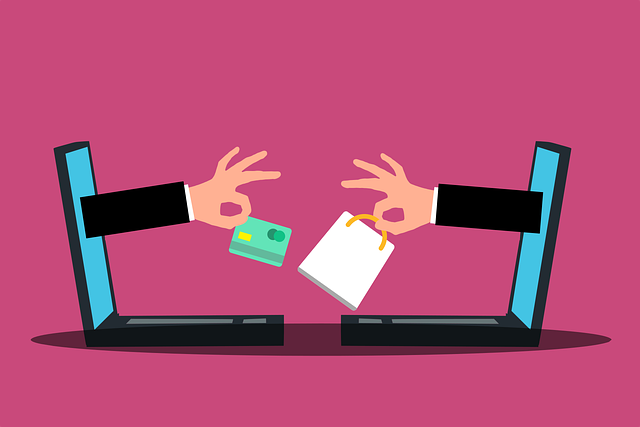In the face of political campaign and lobbyist corruption, journalists rely on an Anonymous Browser for Political Campaigns and Lobbyists as a vital tool. It shields their identities, enabling access to confidential insights and secure communication with whistleblowers without intimidating sources. This strategy safeguards journalists' safety and maintains the confidentiality required to uncover crucial information while balancing ethical considerations through transparent practices.
In the digital age, journalists investigating corruption face unprecedented challenges in maintaining their anonymity. This article explores the critical role of anonymizing search tools in safeguarding investigative journalism. We delve into the need for secrecy, especially when targeting political campaigns and lobbyists. By examining anonymous browsers, secure search practices, and ethical considerations, we provide a comprehensive guide to ensuring journalist safety and integrity. Understanding these methods is essential for navigating the complex landscape of corruption exposure without compromising identities.
- Understanding the Need for Anonymity in Investigative Journalism
- The Role of Anonymous Browsers in Protecting Investigators' Identities
- Implementing Secure Search Practices for Political Campaigns and Lobbyists
- Ethical Considerations and Best Practices for Using Anonymous Browsing Tools
Understanding the Need for Anonymity in Investigative Journalism

In the realm of investigative journalism, uncovering corruption within political campaigns and lobbyist networks is a delicate task. Journalists often find themselves navigating a labyrinthine web of sensitive information. Herein lies the profound importance of anonymity—a shield that allows reporters to gather facts without exposing their identities or intimidating sources.
Anonymity enables journalists to access confidential insights and speak with whistleblowers who may be reluctant to come forward due to potential repercussions. It’s especially crucial when delving into intricate schemes involving powerful entities. An anonymous browser, designed for political campaigns and lobbyist activities, facilitates this process by masking user identities, ensuring a safe space for data collection and source interaction. This strategy has proven to be a game-changer in holding those in power accountable.
The Role of Anonymous Browsers in Protecting Investigators' Identities

Journalists investigating corruption often find themselves in dangerous territories, where their identities can be at risk. This is especially true when probing political campaigns and lobbyists—industries known for employing complex strategies to protect their operations from scrutiny. An effective tool in their arsenal is the anonymous browser.
By utilizing these tools, investigators can surf the web without revealing their personal information or online activities. This anonymity is critical in safeguarding their identities, ensuring they can continue their work undeterred and unhindered. It allows them to navigate sensitive topics, access restricted content, and communicate discreetly with sources—all while maintaining a high level of confidentiality.
Implementing Secure Search Practices for Political Campaigns and Lobbyists

In the realm of political campaigns and lobbying, maintaining privacy is crucial to protect sensitive information. Implementing secure search practices is essential, especially when dealing with anonymous browser usage for these entities. An anonymous browser allows users to surf the web without leaving digital footprints, ensuring a higher level of discretion. This practice can be invaluable for journalists investigating corruption, enabling them to gather evidence and sources without revealing their identities.
By utilizing anonymous browsing tools, political campaigns and lobbyists can safeguard proprietary data and communication channels. It prevents unauthorized access and potential data breaches, which are common risks in the digital landscape. Secure search practices, coupled with anonymous browsers, foster a safe environment for free flow of information, encouraging open dialogue between journalists, sources, and subject matters, ultimately enhancing transparency and accountability.
Ethical Considerations and Best Practices for Using Anonymous Browsing Tools

When journalists investigate political campaigns, lobbying efforts, or corporate interests, they often face significant barriers to gaining access to information and maintaining their anonymity. Using an anonymous browser can help protect reporters’ identities while conducting research online. However, ethical considerations must be carefully balanced with the pursuit of truth-seeking.
Best practices involve ensuring transparency with sources when appropriate, as complete anonymity might raise red flags. Additionally, journalists should respect privacy laws and not engage in illegal activities under the guise of anonymity. An anonymous browser for political campaigns and lobbyists can facilitate access to restricted content or data, allowing reporters to uncover potential corruption or unethical behavior. Yet, it’s crucial to use these tools responsibly, documenting sources and methods to maintain credibility and uphold ethical standards in journalism.
Anonymizing search tools play a vital role in safeguarding journalists’ lives and ensuring the integrity of investigative reporting. By employing anonymous browsers, journalists can navigate the web discreetly, protecting their identities while unearthing crucial information related to corruption. As political campaigns and lobbyists increasingly rely on digital strategies, implementing secure search practices is essential. This includes utilizing anonymous browsing tools designed for these sensitive contexts. Adhering to ethical considerations and best practices ensures that investigators can access critical data without compromising their safety or facing undue scrutiny. By embracing innovative solutions like anonymous browsers, the journalism community can continue to expose corruption and hold power structures accountable.
